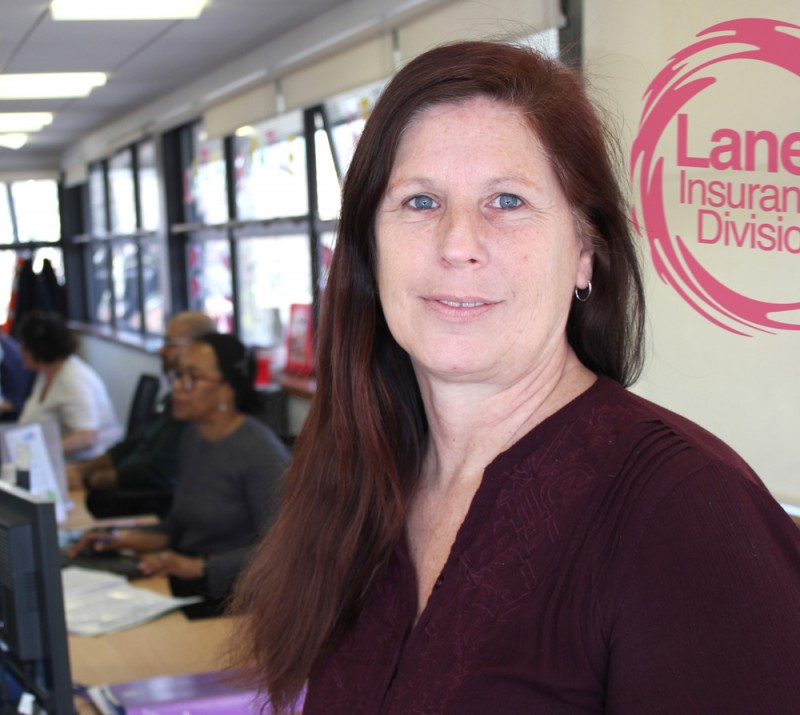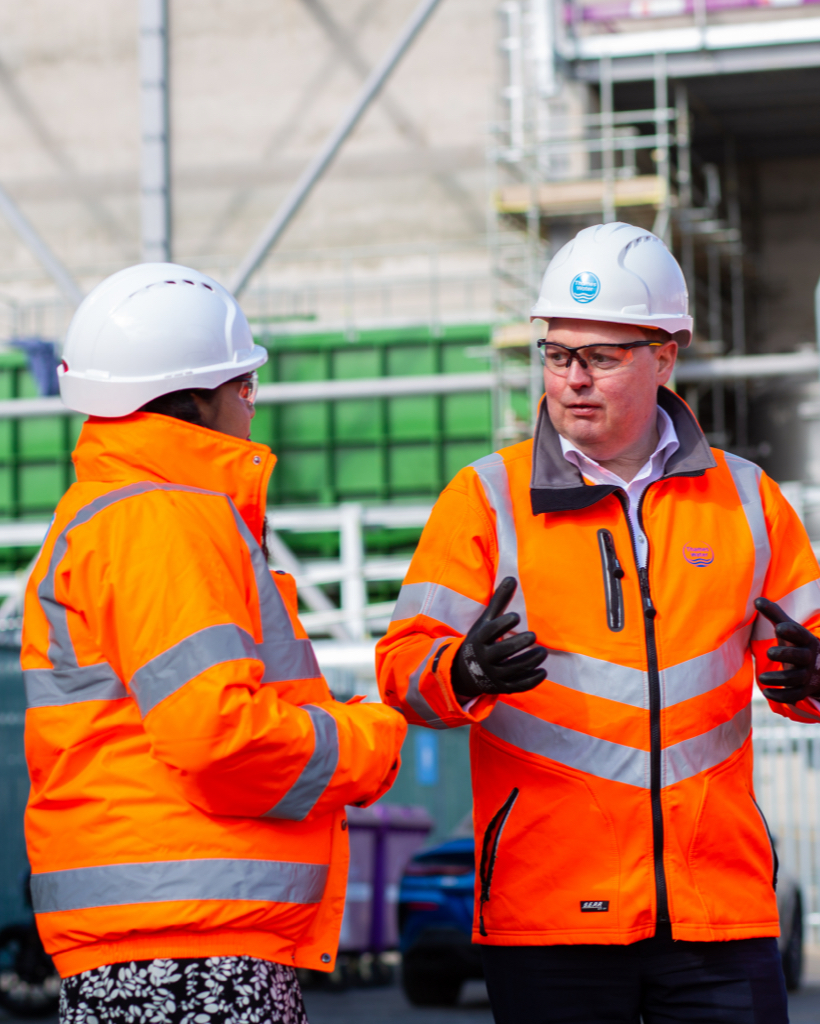Got a pipe problem? You can count on Lisa’s team to help

When an insurance customer needs urgent assistance with a water supply or drainage problem, they value the experts who will take control and sort it, quickly.
That is where Lisa Kibbler’s team comes into its own.
Lisa is the customer operations manager for the Lanes Group plc Insurance Division which provides drainage and clean water supply repair services for the insurance industry.
One of her key measures of success is deceptively simple but very important.
“We must be making more outbound calls than take inbound ones,” she explains. “It’s about being proactive. If an insurance customer feel they must call us, it’s usually because we’ve slipped up somewhere.”
After 10 years in the business, she knows her stuff. And that includes being clear that her team aren’t just call handlers, they are dedicated solution providers.
“Our call centre team looks after individual insurance customers from first contact to the moment their claim has been resolved,” she says. “They own the problem from start to finish.”
Lisa had been working with UKDN Waterflow for five years when Lanes, the UK’s largest independent drainage and utility specialist, took over the business in 2015.
She had started as a part-time call handler in 2010. Now she has responsibility for maintaining the high service standards expected by Lanes, insurance clients and their customers.
“We do well, because we have high expectations of ourselves, just as our insurance clients and their customers have as well,” says Lisa.
“We care about the people we’re helping, and we have the best clean water and drainage operatives, so we can make the system repairs our customers need.”
Lisa and her team are based a stone’s throw from Birmingham Airport. If an insurance client receives a call about a drainage or clean water problem from a policy holder, they are the first to be alerted.
From the moment that notification arrives, Lisa’s team has 30 minutes to make the first customer call. Details are uploaded into the team’s bespoke customer management system and the solution wheels begin to whirr.
“The most important first task is to establish if the customer is vulnerable in any way,” says Lisa. “That could be because of age, disability, or having children or a dependent relative in the property.
“We have 12 questions to triage this process. Ultimately, though, we will take the customer’s self-assessment. If they say they’re vulnerable, we treat them as such. No questions asked.”
That assessment is flagged in big red digital letters on the customer’s account. To meet agreed service levels, vulnerable customers must then be visited within four hours.
That visit could take place anywhere in the UK. Clean water technicians are based at key Lanes depots across the country. While Lanes drainage engineers respond to problems with drains, septic tanks and water treatment systems.
Then Lisa’s team looks after the customer for every step of their journey. Providing a single point of contact. Liaising with the operational teams. And advising customers on progress and next steps.
Their service level agreements require jobs to be closed, on average, within 10 days. Most are completed much more quickly. But some complex and longer-term tasks, such as septic tank replacement, extend the average time.
A priority is placed on providing a first-time permanent fix, especially for clean water problems. That means not just clearing a drain blockage but looking for the underlying problem and sorting it.
Another priority is to treat customers fairly, in line with the key objectives of insurance clients and the regulations of the Financial Conduct Authority. Lisa runs daily data checks to ensure this is happening.
So, what qualities does someone need to be a good Lanes insurance claims handler?
“We want to employ people who have empathy for other people, who really care for them,” says Lisa. “They have to also be able to stay calm when customers can be, for understandable reasons, very anxious.
“They must be good communicators and be completer finishers. We’re managing repair projects on our customers’ behalf. We need to make sure we stick to our promises. So being assertive and persuasive in a positive way is very important.”
Learning technical detail comes with the job and will be very helpful over time. But the team has its own technical specialist to advise colleagues and customers about complex tasks and plan solutions.
The job has its share of moments of stress. The team has performance targets to meet. Customers do not want to be without clean water or their toilets for long.
But Lisa makes sure staff wellbeing is front and centre. Training is comprehensive and takes account of individual needs. Support is always at hand. Colleagues can choose how to manage their break time and there are comfortable rest areas.
And then there is the pleasure of knowing you are making a real difference to other peoples’ lives. Lisa’s team, along with frontline technicians and engineers, regularly get very positive comments about the help they provide:
“10 out of 10 service, and Jackie has been brilliant with how she has dealt with the claim.”
“[The customer] advised the engineers were fantastic, polite helpful and could not do enough for her. She advised the claim from start to finish was handled brilliantly.”
“The customer has complimented Rahima and is really happy with her customer service skills and cannot recommend [Lanes] highly enough.”
It is the kind of job that regularly lets people know they are making a difference, says Lisa. “There’s a lot of process, data capture and technical detail with our role.
“But, ultimately, it’s about helping people when they need that help the most and doing right by others. In my book, that’s making a positive contribution to society.”







